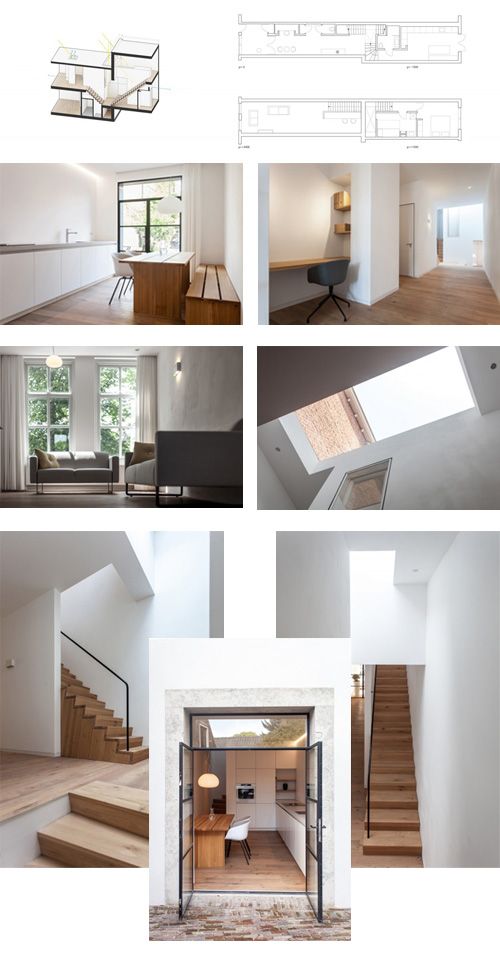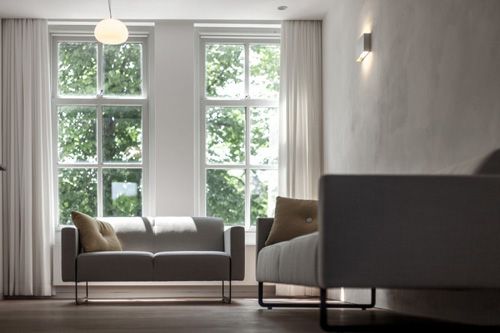
Glazing Vision’s rooflights have been instrumental in helping young Dutch architect Tim de Graag achieve an outstanding showcase of how to maximise light to enhance space with the renovation of a 3-metre-wide house in Zierikzee.
This narrow, 18th century house in the South West of Holland had been in decay since the 70s when it lost its historical exterior and had lain empty for several years. Essentially reduced to just a shell by the time the owner purchased it in 2015, the property, like similar houses in the area, presented a number of challenges to overcome before it could become a modern and workable home – long dark corridors, poor privacy caused by the ground floor windows facing the street, and, critically, a lamentable lack of daylight throughout the house.
De Graag’s dynamic concept for creating a spacious, light and calm interior in what became known as House 20×3 required a fundamental re-shaping of the property’s floor plan and the introduction of a central axis to maximise the amount of natural daylight. The resulting four floors, connected by an elegant oak T-shaped staircase, provide modern yet relaxed studio living. The living room was moved to the first floor in order to benefit from the vista over the historical harbor and the bijou kitchen moved to the lowest floor, where a glass door provided much needed light as well as access to the small garden. The master and guest bedrooms are located above the kitchen.
It is the sightline at the heart of the property that is pivotal to the harmonious interaction of the various rooms of the house, and most importantly for bringing light into them. A Flushglaze Fixed rooflight and VisionVent hinged rooflight were both supplied by Glazing Vision and precision engineered to bespoke sizes for House 20×3; these were strategically placed above the sightline.
As reported in the NARM Technical Document NTD 12 2015, an effective and optimised layout of rooflights is essential to allowing light into the home but also to determine the type and amount of light that actually enters the home – this could be direct, diffused or reflected light. Bringing daylight into buildings is connected to a number of benefits for humans: vision, orientation, productivity, alertness and ultimately health.
Providing daylight solely through conventional windows in this narrow and deep property at Zierikzee would have had serious limitations, with some areas remaining in shadow as the daylight intensity varies dramatically. De Graag, in specifying these Glazing Vision rooflights, with their lack of visible internal framework and the glazing pointing directly at the light source, ensured that light falling into the core of the house was maximised and the modern aesthetics of the property were not compromised.
The VisionVent hinged rooflight also offered additional benefits to De Graag – it minimises the impact from the heat of the summer, and provides much needed ventilation in this split-level house.
De Graag has successfully transformed what was a “dark corridor ” into a beautiful, spacious modern home, flooded with light and in harmony with its surroundings. His sophisticated daylight concept won over the jury who appreciated the clever routing, the sightline all the way through the building and the position, size and proportion of the rooflights.
To find out more about design considerations for your project, please call Glazing Vision’s technical department on 01379 353 741 or request a CPD.




